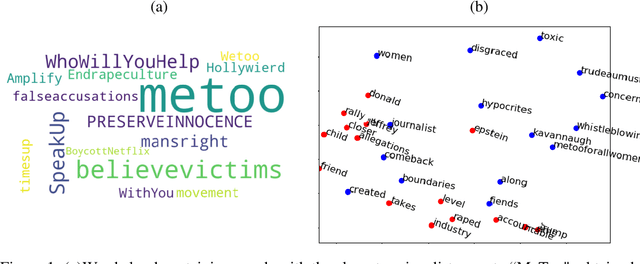Finding Social Media Trolls: Dynamic Keyword Selection Methods for Rapidly-Evolving Online Debates
Paper and Code
Nov 16, 2019

Online harassment is a significant social problem. Prevention of online harassment requires rapid detection of harassing, offensive, and negative social media posts. In this paper, we propose the use of word embedding models to identify offensive and harassing social media messages in two aspects: detecting fast-changing topics for more effective data collection and representing word semantics in different domains. We demonstrate with preliminary results that using the GloVe (Global Vectors for Word Representation) model facilitates the discovery of new and relevant keywords to use for data collection and trolling detection. Our paper concludes with a discussion of a research agenda to further develop and test word embedding models for identification of social media harassment and trolling.
 Add to Chrome
Add to Chrome Add to Firefox
Add to Firefox Add to Edge
Add to Edge